10 Foods You Should Never Eat
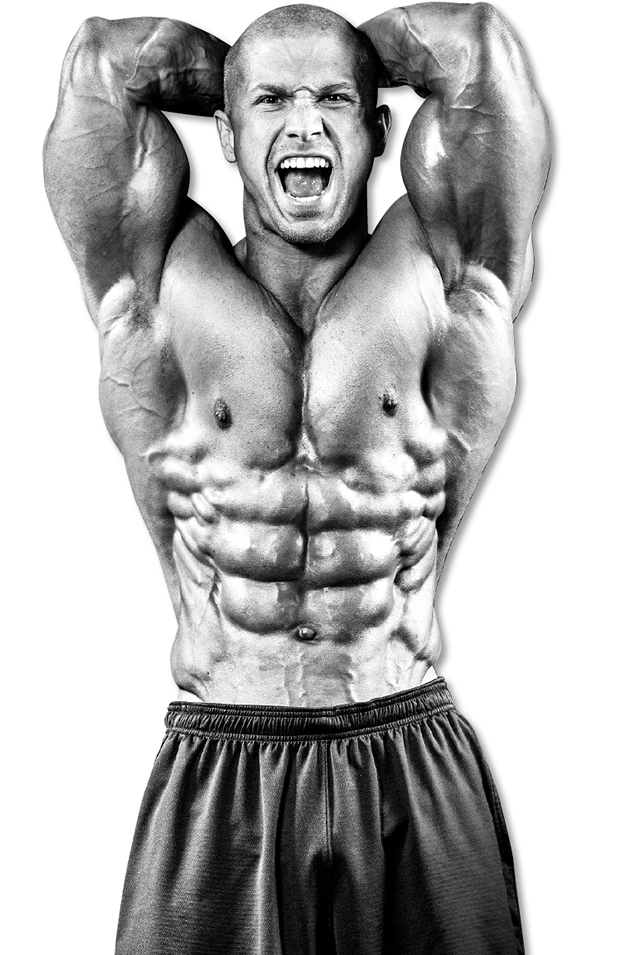
Most people know what types of foods they should eat when dieting to get ripped, but do you know what foods you shouldn’t eat? Cutting out all the bad food is just as important as eating the right types. If you really want to get ripped, you need to get rid of the garbage and only eat the good stuff. Read on to find out more about ten foods you must avoid if you want to really maximize fat loss!
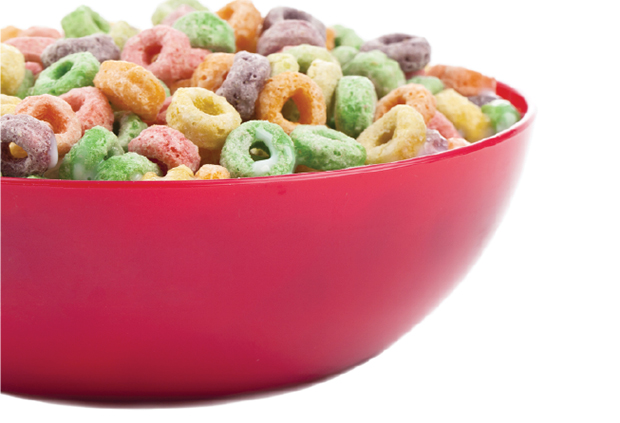
Food #1: Processed Carbs and Simple Sugars
Processed carbs are made with processed white flours and simple sugars, and usually contain other ingredients such as preservatives. Eating processed and refined carbs leads to blood sugar spikes that can quickly be followed by a crash. The end result is hunger cravings and an overactive insulin response. What does this mean to you? Well for one thing, the more increases in blood sugar that occur in the body, the less fat you’re burning. In fact, sugar causes you to store fat instead of burning it. When you eat sugar, insulin responds by grabbing the sugar and shuttling it to either be used immediately by your muscles or be stored. If your muscles already have plenty to use, the next stop is directly to your fat cells for storage. Avoid eating all processed carbs including breads, pastries, cereals and white pasta. Instead, eat more non-starchy sources such as vegetables or whole grains such as quinoa and brown rice.

Food #2: Soda (Even the Diet Variety)
Soda in general should never be consumed, whether you’re on a diet or not. The main ingredient is sugar. Drinking pure sugar will only result in substantial fat gains over time, but even if you switch your regular for diet, you won’t be doing yourself any favours. Diet pop may not contain calories, but it does contain ample artificial sweeteners. It’s not known yet how artificial sweeteners respond in the body, but some preliminary research suggests that sweeteners alter the bacterial composition of the gut. With the new bacterial composition of your gut comes higher blood glucose levels and the development of glucose intolerance. Glucose intolerance can make it harder to process glucose in the body and lead to insulin resistance, which makes it difficult to store or utilize the food you’re putting in your body. Instead of diet soda, stick with plain or sparkling water with a squeeze of lemon or lime.

Food #3: Alcohol
Perhaps it’s a no-brainer, but alcohol really isn’t conducive to fat loss. Alcohol is considered a poison, and your body responds by shutting off all other metabolic processes, including fat burning and muscle building, and switches to metabolizing the alcohol out of your body. In addition, alcohol doesn’t come without calories; it has 7 calories per gram, and that doesn’t count the additional calories that you could be adding from mixers such as cranberry or orange juice. When you drink alcohol, you can actually crave sugar since your body isn’t metabolizing food when you drink. This can lead to overeating to compensate for the dip in blood sugar. The best solution is to completely avoid alcohol if your goal is to trim fat and get ripped!
Food #4: Convenient Protein Bars
Protein bars are easy to eat and convenient and can help keep your hunger satisfied when you’re in a pinch, but they’re not necessarily the best food item when it comes to fat loss. First off, most contain lower grade protein sources, such as soy and collagen. Protein bars can also provide you with unnecessary ingredients such as sweeteners, bad fats, or even sugars to help improve taste, flavour, and texture. All in all, if you’re serious about your diet, you should be eating natural, whole foods. What you see on the label won’t always be accurate when it comes to a protein bar. If you do decide to include protein bars in your diet, be certain the ingredients are coming from high quality sources such as whole grains, complete proteins, natural nut butters, seeds, and sweeteners such as stevia. Also be cautious of the calorie content; be sure the calories don’t exceed what you would normally have for a given meal.
Food #5: Soy Protein
Soy protein is highly processed and very far from its natural form. It falls short on essential amino acids and contains isoflavones, which can contribute to increases in estrogen metabolism and decreases in testosterone; this isn’t a favourable scenario when you’re trying to lose fat. A dose of 56 grams (or about two scoops of soy protein) supplemented for 28 days was found to significantly lower testosterone levels in healthy men. Most soy protein is genetically modified and lacks many of the essential amino acids that are needed to build lean muscle and support fat loss. Instead of soy protein, stick to whey or other milk-based proteins, or use high-quality vegan sources such as pea and hemp or a blend of vegan sources to make up a complete essential amino profile.

Food #6: Non-Organic Dairy
Yes, dairy can be a good source of protein, but it can also be a source of unwanted hormones too! Dairy cows are more often than not kept pregnant for most of their life, in order to be milked more often. This practice results in increased estrogen and other hormones in milk. Research suggests that dairy products account for the majority of estrogen increases caused by the diet. If you’re eating a ton of dairy such as milk, yogurt, and cottage cheese, you could be unknowingly increasing your estrogen level. Why is this bad? Well, when estrogen is high, it causes an imbalance in your other hormones including testosterone. High levels of estrogen can shift the body to increase fat storage and decrease fat burning. The best solution? Avoid dairy. If you feel the need to keep dairy in your diet, consider buying organic whenever possible as it isn’t produced using the same practices that the commercial dairy industry uses.

Food #7: Fruit
Fruit is a healthy food. It’s a good source of vitamins, minerals, and fibre, but unfortunately too much of it isn’t a good thing. Fruit is a source of fructose, and if you eat too much fruit, you’ll be getting too much simple sugar. Fructose is metabolized by the liver, transforming it into fat, and sending that fat to fat cells for storage. Too much fructose can have toxic effects. In fact, fructose reacts with proteins and polyunsaturated fats in our body more than it does with glucose, creating by-products that can cause oxidative damage in our cells, leading to inflammation. Limit your fruit intake when trying to get ripped, and choose fruit that’s high in fibre and lower on the glycemic index. Your best options are berries (e.g., blueberries or blackberries) and sour fruits such as green apples and grapefruit.
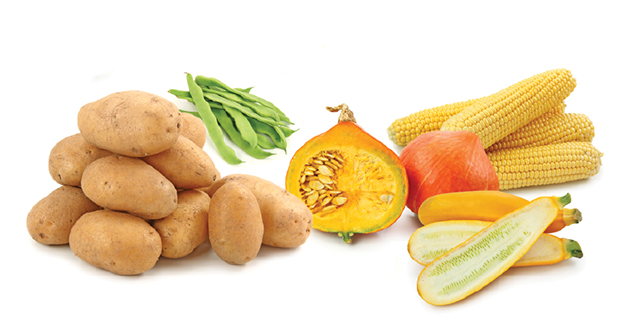
Food #8: Starchy Vegetables
Not all vegetables are created equal. Starchy vegetables such as corn and potatoes are high in simple sugars. Although vegetables do offer other benefits such as vitamins, minerals, and fibre, the amount of starch and sugars in these foods can quickly add up. It’s better to forget about these vegetables and switch to less starchy options that are higher in fibre such as spinach, beans, and lentils. Additionally, switch to more cruciferous vegetables including broccoli, kale, cabbage, and cauliflower, which offer up an additional benefit: they deliver a source of antioxidants known as indoles that can help fight off excess estrogen and keep hormone levels balanced in the body.
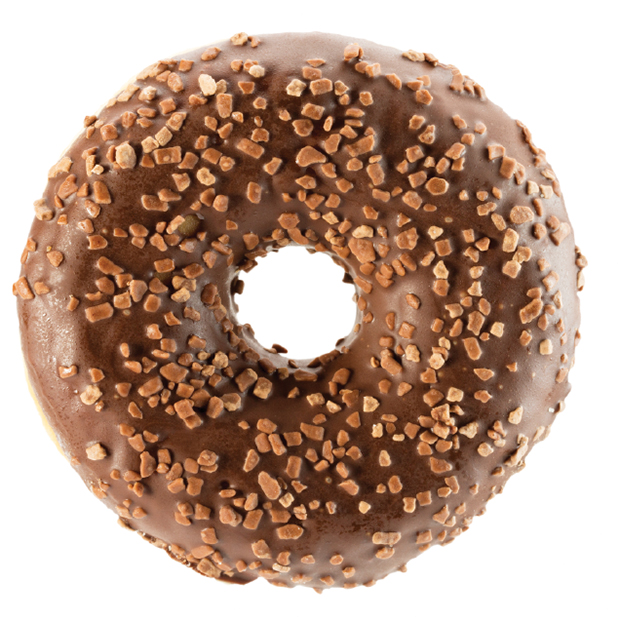
Food #9: Unhealthy Processed Fats
Yes, you need fat in your diet, but only the good kind! Trans fats are artificial fats created using chemical processes that add hydrogen to liquid vegetable oils to make them more solid. They’re found in all the foods that aren’t part of a healthy diet including processed packaged foods and foods that are fried such as doughnuts, baked goods, cookies, and crackers. Trans fats raise your bad LDL cholesterol and lower your good HDL cholesterol. Drop all these empty foods from your diet, and only use healthy fats from natural sources, including coconut oils, nuts, seeds, avocados, and olives.

Food #10: Non-Organic Meats
Meat is a good source of protein, but if you’re eating meat that’s not organic, you could be getting more than you bargained for. Non-organically raised animals are given feed that can contain antibiotics and hormones that can affect your own hormone levels after repeated exposure. After time, this will result in a disruption to fat burning and muscle building. Whenever possible, choose organic meats that come from free-range animals that are hormone-free and fed organic feed (that which is grown in soil that’s free of synthetic fertilizers and pesticides).
5 Foods You Should Be Eating for Fat Loss
1. Oatmeal
If you’re into fitness, you’re probably into oatmeal. This whole grain provides a great source of long-lasting complex carbohydrates and fibre. One study showed that eating oatmeal for six weeks resulted in inches lost off waistlines, not to mention that subjects felt fuller for longer periods of time. Incorporate oatmeal into your daily meal plan. Make overnight oats and add them to your protein pancakes or eat them with berries or nut butter. One half cup provides about 30 grams of carbs and 4 grams of fibre.

2. Nuts
Research shows eating tree nuts or even peanuts can help with fat loss. Nuts have the ability to decrease appetite, which can improve diet compliance. This is probably due to their fibre content but also to their ability to increase serotonin, a key hormone that works to reduce appetite and increase satiety. Low carbohydrate diets are often associated with lower serotonin levels, so eating a one-ounce serving of nuts with a protein shake is a perfect snack to help keep you satisfied.
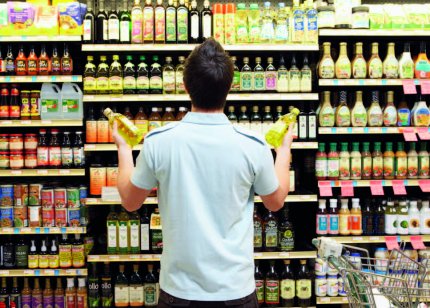
3. Olive Oil
Olive oil is a great source of monounsaturated fat. This fat has been shown to help increase fat loss when used as part of a low-carbohydrate diet. It’s also been linked to improving blood glucose and cholesterol levels. Add a tablespoon of extra-virgin olive oil to your salads or use when cooking.
4. Chili Peppers
Chili peppers contain the active ingredient capsaicin, which has been shown to help reduce hunger and increase metabolism. Capsaicin helps to increase norepinephrine (a key fat-burning hormone) by increasing a metabolic pathway that keeps it active for longer periods of time. Add a shot of hot sauce to your meals for an extra thermogenic punch!
5. Green Tea
Green tea provides the active thermogenic ingredient epigallocatechin gallate (EGCG), which has been shown to increase and sustain the production of norepinephrine activity in the body. Green tea works by increasing your 24-hour energy expenditure, or the amount of calories you burn at rest. You can drink green tea throughout the day, add green tea matcha powder to your protein shakes for an energizing fat-burning smoothie, or use a standardized green tea supplement.
References:
Dillingham BL, McVeigh BL, Lampe JW, Duncan AM. Soy protein isolates of varying isoflavones content exert minor effects on serum reproductive hormones in healthy young men. J Nutr. 2005 Mar;135(3):584-91.
Cardoso GA, Salgado JM, Cesar MD, Donado-Pestana CM. The effects of green tea consumption and resistance training on body composition and resting metabolic rate in overweight or obese women. J Med Food. 2013 Feb;16(2):120-7.
Goodin S, Shen F, Shih WJ, et al. Clinical and biological activity of soy protein powder supplementation in healthy male volunteers. Cancer Epidemiol Biomarkers Prev. 2007 Apr;16(4):829-33.
Jéquier E. Alcohol intake and body weight: a paradox. Am J Clin Nutr. 1999 Feb;69(2):173-4.
Mattes RD, Kris-Etherton PM, Foster GD. Impact of peanuts and tree nuts on body weight and healthy weight loss in adults. J Nutr. 2008 Sep;138(9):1741S-1745S.
Shai I, Schwarzfuchs D, Henkin Y, et al. Weight loss with a low-carbohydrate, Mediterranean, or low-fat diet. N Engl J Med. 2008 Jul 17;359(3):229-41.
Suez J, Korem T, Zeevi D, et al. Artificial sweeteners induce glucose intolerance by altering the gut microbiota. Nature. 2014 Oct 9;514(7521):181-6.
Yoshioka M, St-Pierre S, Drapeau V, et al. Effects of red pepper on appetite and energy intake. Br J Nutr. 1999 Aug;82(2):115-23.
Zhang J, Li L, Song P, et al. Randomized controlled trial of oatmeal consumption versus noodle consumption on blood lipids of urban Chinese adults with hypercholesterolemia. Nutr J. 2012 Aug 6;11
For more tips on fat loss from the Supplement Godfather, check out Don's column here!

